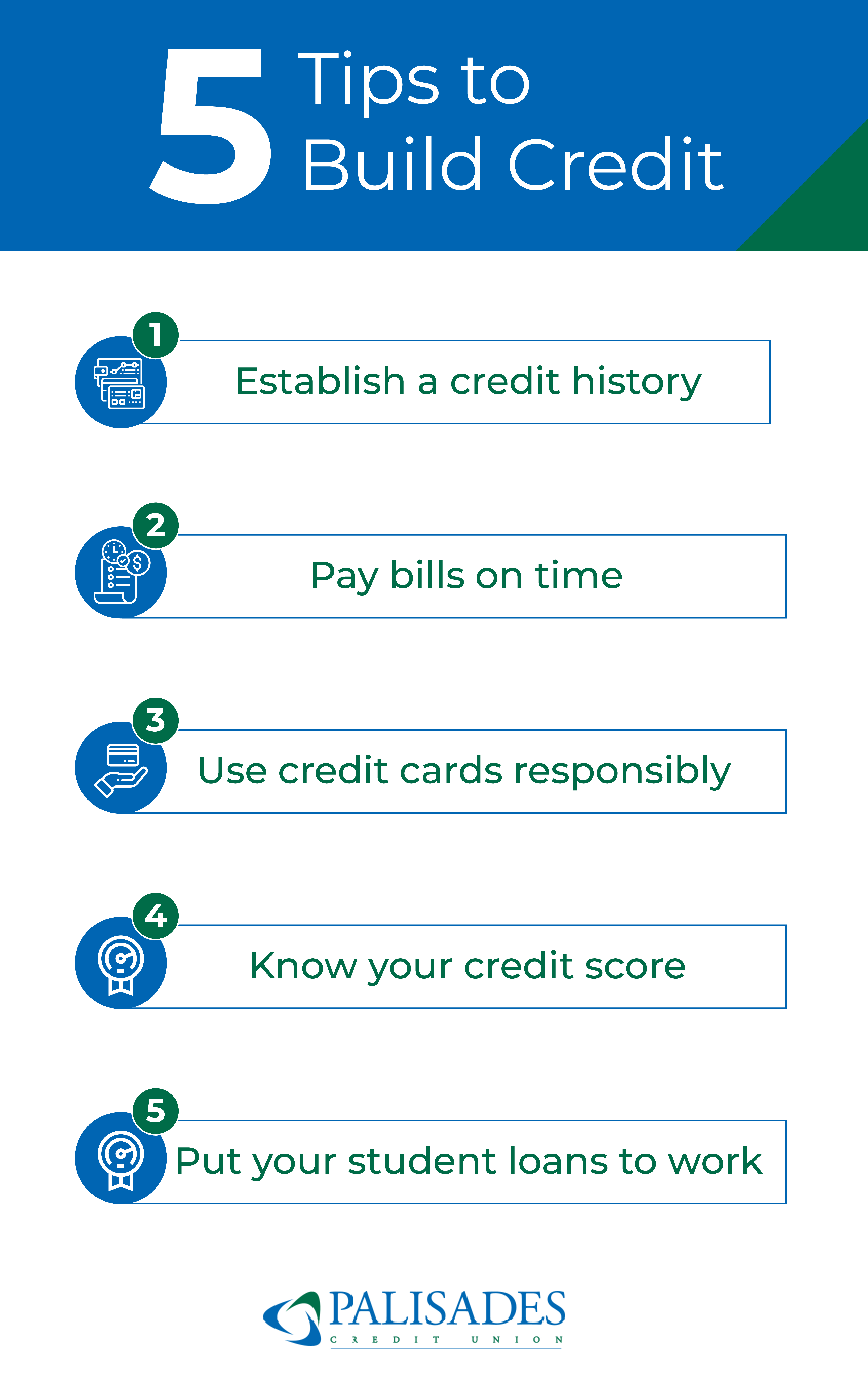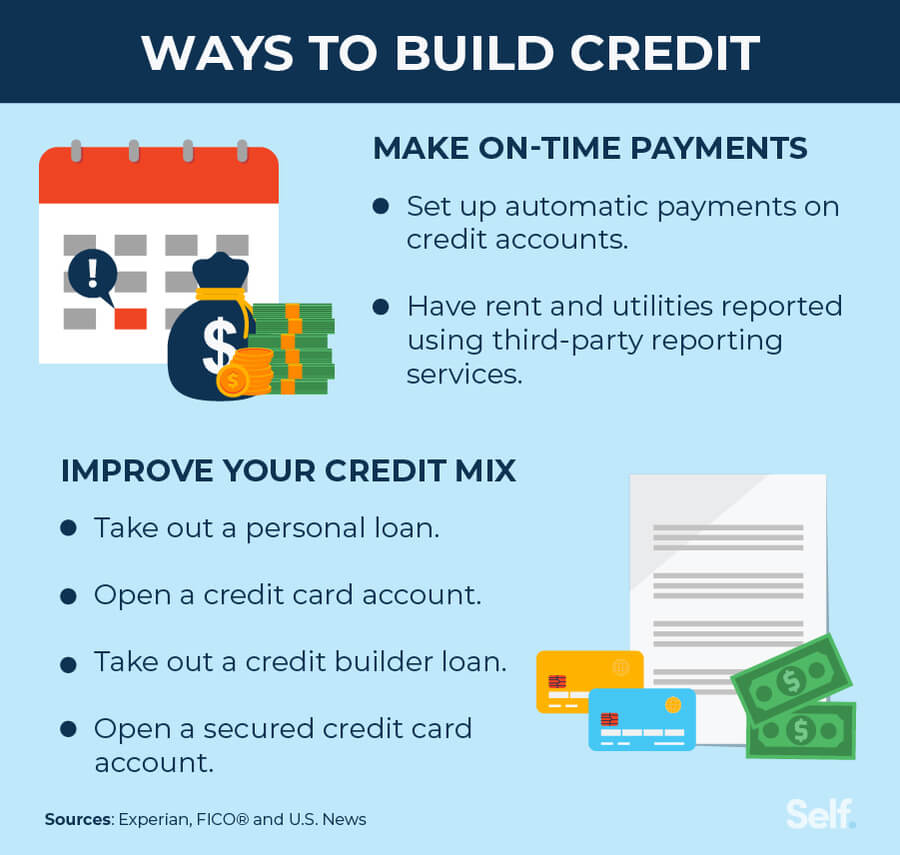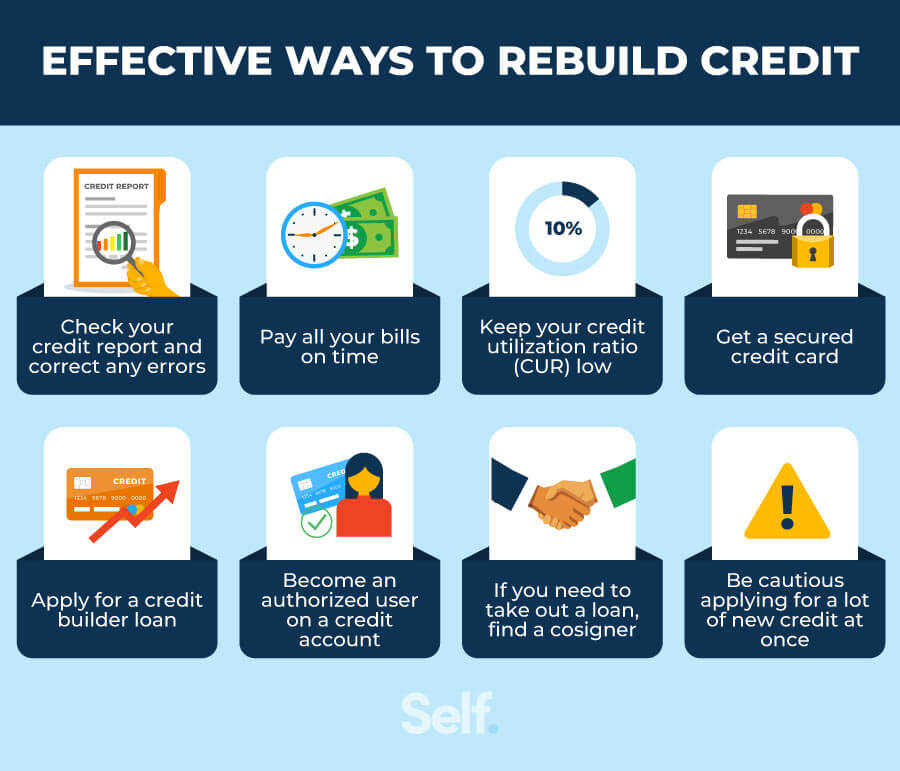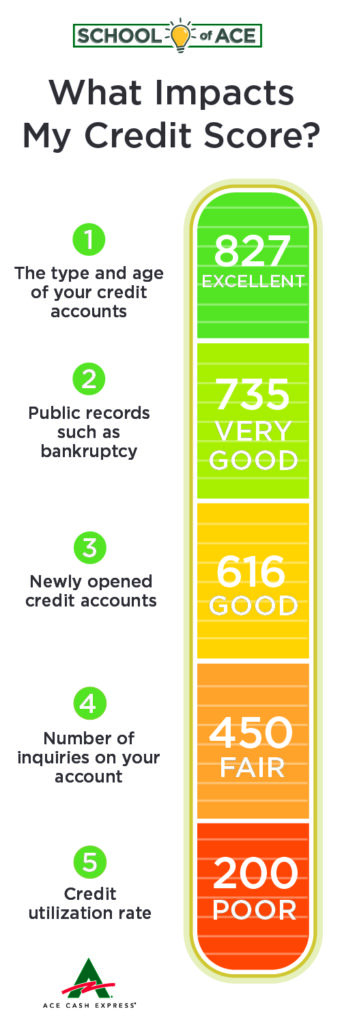Picture this: you’re ready to make a big purchase, maybe it’s a shiny new car or your dream home. You confidently stroll into a bank, armed with your impeccable credit history, only to be met with disappointment. Your credit score is lower than you expected, and your dreams seem just out of reach. Sound familiar? Building a positive credit history is essential for financial success, but it can often feel like navigating a maze of complex rules and regulations. However, fear not! In this article, we will delve into some effective strategies that can help you build a solid credit history, paving the way for future financial opportunities.
Firstly, we’ll explore the concept of responsible credit card usage. Yes, credit cards can sometimes get a bad rap, but when used wisely, they can be valuable tools for building credit. We’ll discuss how keeping a low credit utilization ratio, making payments on time, and avoiding unnecessary debt can all contribute to a positive credit history. Next, we’ll dive into the world of installment loans and how they can help diversify your credit portfolio. From personal loans to auto loans, we’ll uncover the benefits of responsible borrowing and timely repayments. Lastly, we’ll shed light on the power of regularly monitoring your credit report. By staying informed about your credit history, you can identify and address any errors or discrepancies that may be dragging your score down. So, let’s roll up our sleeves and equip ourselves with the knowledge and strategies needed to build a positive credit history.
Understanding Credit History
Credit history refers to the record of your past borrowing and repayment activities. It includes information about your credit accounts, such as loans, credit cards, and retail store credit cards, as well as your payment history, credit utilization, and the length of your credit history. This information is used by lenders and financial institutions to determine your creditworthiness and make decisions about whether to approve your future credit applications.
Having a good credit history is crucial because it can determine your ability to borrow money, secure favorable interest rates, and even affect your chances of renting an apartment or getting a job. A positive credit history demonstrates that you are responsible with credit and can be trusted to repay borrowed money on time.
Establishing a Credit History
If you are just starting to build your credit history or trying to improve a poor credit score, there are several strategies you can use:
Start with a Secured Credit Card
A secured credit card is an excellent option for individuals with no credit history or a low credit score. It requires a cash deposit that acts as collateral and sets your credit limit. By making regular payments and keeping your balance low, you can establish a positive payment history.
Become an Authorized User
If you have a family member or close friend with a good credit history, ask them to add you as an authorized user on their credit card. This allows you to benefit from their positive payment history and utilization ratio. However, it’s crucial to ensure that the primary cardholder is responsible and makes timely payments.
Apply for a Credit Builder Loan
A credit builder loan is specifically designed to help individuals establish or improve their credit history. Instead of receiving the loan funds upfront, the amount is deposited into a savings account, and you make small monthly payments. Once the loan is fully paid, the funds are released to you, and you have a positive payment history to show.
Open a Retail Store Credit Card
Retail store credit cards often have more lenient approval requirements, making them a good option for those with limited credit history. By using the card responsibly and making timely payments, you can demonstrate your creditworthiness and start building a positive credit history.

This image is property of www.palisadesfcu.org.
Managing Credit Responsibly
Once you’ve established a credit history, it’s essential to manage your credit responsibly to maintain a good credit score. Here are some tips to help you:
Pay Bills on Time
Paying your bills on time is one of the most crucial factors in maintaining good credit. Late payments can negatively impact your credit score and stay on your credit report for up to seven years. Set up automatic bill payments or use reminders to ensure you never miss a payment.
Keep Credit Utilization Low
Credit utilization refers to the percentage of your available credit that you’re using. It’s recommended to keep your credit utilization below 30%. High credit utilization can indicate financial instability and impact your credit score negatively. Regularly monitor and pay off your balances to keep your credit utilization low.
Maintain a Mix of Credit Types
Having a diverse mix of credit types, such as credit cards, loans, and mortgages, shows lenders that you can manage different types of credit responsibly. However, it’s essential to only take on credit that you can afford to repay and not open unnecessary accounts.
Avoid Opening Too Many Accounts
While having a mix of credit types is important, opening too many accounts within a short period can raise red flags for lenders. Each time you apply for credit, it generates a hard inquiry on your credit report, which can temporarily lower your credit score. Only apply for credit when necessary and avoid unnecessary credit applications.
Monitoring and Reviewing Credit Reports
Regularly monitoring and reviewing your credit reports is essential to ensure the accuracy of the information and identify any errors or signs of identity theft. Here’s what you should do:
Obtain Your Credit Reports
You can request a free copy of your credit report from each of the three major credit bureaus (Experian, Equifax, and TransUnion) once per year. Review your reports from all three bureaus to get a comprehensive view of your credit history.
Check for Errors
Carefully review each section of your credit reports for any errors, such as incorrect personal information, inaccurate account information, or fraudulent activity. If you identify any errors, dispute them with the credit bureaus to have them corrected.
Monitor for Identity Theft or Fraud
Regularly monitoring your credit reports can help you identify any signs of identity theft or fraudulent activity. Look out for unfamiliar accounts, unauthorized inquiries, or sudden changes in your credit score. If you notice any suspicious activity, report it immediately to the credit bureaus and take appropriate steps to protect your identity.

This image is property of images.ctfassets.net.
Building Positive Payment History
Maintaining a positive payment history is crucial for building and improving your credit score. Here are some strategies to help you achieve this:
Automate Bill Payments
Automating your bill payments can help ensure that you never miss a due date. Set up automatic payments for your credit cards and loans to avoid any late payments and maintain a positive payment history.
Set Up Payment Reminders
If you prefer to manually make your payments, consider setting up payment reminders through your bank’s online banking platform or using mobile apps. These reminders will notify you when a payment is due, preventing any oversight.
Negotiate with Creditors
If you are struggling to make payments due to financial hardship, consider reaching out to your creditors to discuss potential options. Some creditors may be willing to negotiate lower interest rates or modified payment plans, allowing you to make payments more comfortably and avoid defaulting.
Pay Off High-Interest Debt First
If you have multiple debts with varying interest rates, focus on paying off the high-interest debts first. By tackling these debts aggressively, you can reduce the overall interest you pay and free up more money to pay off the remaining debts.
Building Credit with Loans
Taking out loans can be an effective way to build credit history if managed responsibly. Here’s how you can do it:
Take Out an Installment Loan
Installment loans, such as personal loans or auto loans, provide an opportunity to build credit history through regular, on-time payments. Ensure that you can comfortably afford the loan payments before taking on additional debt.
Repay Loans Promptly
Make all loan payments on time to establish a positive payment history. Late or missed payments can have a significant negative impact on your credit score. Utilize automatic payments or set up reminders to stay on track with your loan repayments.
Utilize Credit-Builder Loans
Credit-builder loans, as mentioned earlier, are specifically designed to help individuals establish credit. By making regular payments on a credit-builder loan, you can demonstrate your ability to handle credit responsibly, leading to an improved credit score.

This image is property of www.credit.com.
Seeking Assistance from Credit Counseling Agencies
Sometimes, it can be beneficial to seek guidance from credit counseling agencies. Here’s what you should know:
Understand Credit Counseling
Credit counseling involves working with a certified credit counselor to assess your financial situation, create a budget, and develop a plan to manage your debts and improve your credit. Credit counselors can provide valuable insights and strategies to help you achieve your financial goals.
Consult with a Credit Counselor
If you are struggling with debt or need help managing your finances, consult with a reputable credit counseling agency. They can provide personalized guidance based on your unique circumstances and help you develop an action plan to improve your credit and financial well-being.
Avoiding Negative Credit Actions
To maintain a positive credit history, it’s crucial to avoid certain actions that can harm your credit. Here’s what to avoid:
Do Not Miss Payments
Missing payments can have a severe impact on your credit score and remain on your credit report for years. Make sure to stay on top of your payments and prioritize them to avoid any negative consequences.
Avoid Delinquency or Default
Delinquency occurs when you fail to make payments on time, while default happens when you completely fail to repay a debt. Both delinquency and default severely damage your credit history and can lead to legal consequences. Always communicate with your creditors if you are facing financial difficulties to explore alternative options.
Cease Cosigning for Others
Cosigning for someone else’s loan or credit card can be risky. If the primary borrower defaults or makes late payments, it will negatively impact your credit history. Carefully consider the potential consequences before cosigning for someone.

This image is property of images.ctfassets.net.
Building Credit with Responsible Financial Habits
In addition to the strategies mentioned above, incorporating responsible financial habits into your daily life can significantly impact your creditworthiness. Consider the following:
Budgeting and Saving
Create a budget that allows you to keep track of your income and expenses. By prioritizing saving and avoiding unnecessary purchases, you can build an emergency fund and demonstrate financial stability.
Limiting Credit Applications
Frequently applying for new credit can raise concerns among lenders and lower your credit score temporarily due to hard inquiries. Only apply for credit when necessary and avoid excessive credit applications.
Using Credit Sparingly
While it’s important to have credit accounts to build a credit history, it’s equally important to use credit sparingly. Avoid maxing out credit cards or carrying high balances. Use credit strategically and responsibly, only purchasing items you can afford to pay off promptly.
Time as a Building Factor
Building credit takes time. Here’s how you can leverage time to improve your credit:
Build Credit Over Time
Consistently demonstrating responsible credit behavior over an extended period is an effective way to build a positive credit history. Make payments on time, keep credit utilization low, and avoid negative credit actions consistently.
Allow Credit Accounts to Age
The length of your credit history is a significant factor in credit scoring models. As your credit accounts age, they contribute to a longer credit history, which can positively impact your credit score. Avoid closing old credit accounts unless necessary and maintain a good payment history on all accounts.
In conclusion, building and maintaining a positive credit history requires a combination of strategies and responsible financial habits. By understanding credit history, establishing a credit history through secured cards and loans, managing credit responsibly, monitoring credit reports, and utilizing loans and credit counseling when needed, you can improve your creditworthiness and secure better financial opportunities in the future. Remember to be patient, as building credit takes time, but the benefits are well worth the effort.

This image is property of www.acecashexpress.com.
